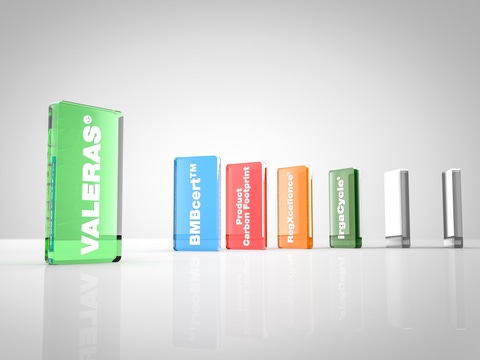Plastics & Rubber
Biomass Balance
BASF has received the International Sustainability and Carbon Certification (ISCC) PLUS for Irganox® 1010 BMBcert™ and Irganox® 1076 BMBcert™ antioxidants, manufactured in Kaisten, Switzerland and McIntosh, Alabama, United States.
This certification will enable BASF to offer more sustainable grades of its Irganox® 1010 and Irganox® 1076, antioxidants with a reduced Product Carbon Footprint (PCF) through the use of renewable raw materials in a mass balance approach.
An ISCC Plus certification covers the entire value chain and ensures the use of renewable raw materials. It is an internationally recognized certification for the mass balance methodology.
BASF’s biomass approach contributes to the use of renewable raw materials in BASF’s integrated production system and is now being applied to both Irganox® 1010 BMBcert™ and Irganox® 1076 BMBcert™, with future offerings within the BASF product portfolio to come.
The resulting biomass balanced products offer BASF customers a differentiation opportunity such as a quantifiably improved CO2 footprint and savings on fossil resources. Customers can expect an identical product quality and performance to what they are accustomed to and benefit from a sustainable drop-in solution, making a conscious contribution to environmental protection.
Sustainability Benefits
Biomass Balance Approach
BASF continues to develop and expand the biomass balance process through the use of renewable raw materials in the chemical industry. BASF decreases the use of fossil fuels in our Verbund production through the replacement of fossil feedstock with renewable raw material. This biomass balance approach has gained third party certification and allows BASF to produce biomass balance certified (BMBcert™) product grades for select offerings in the plastic additives industry.




